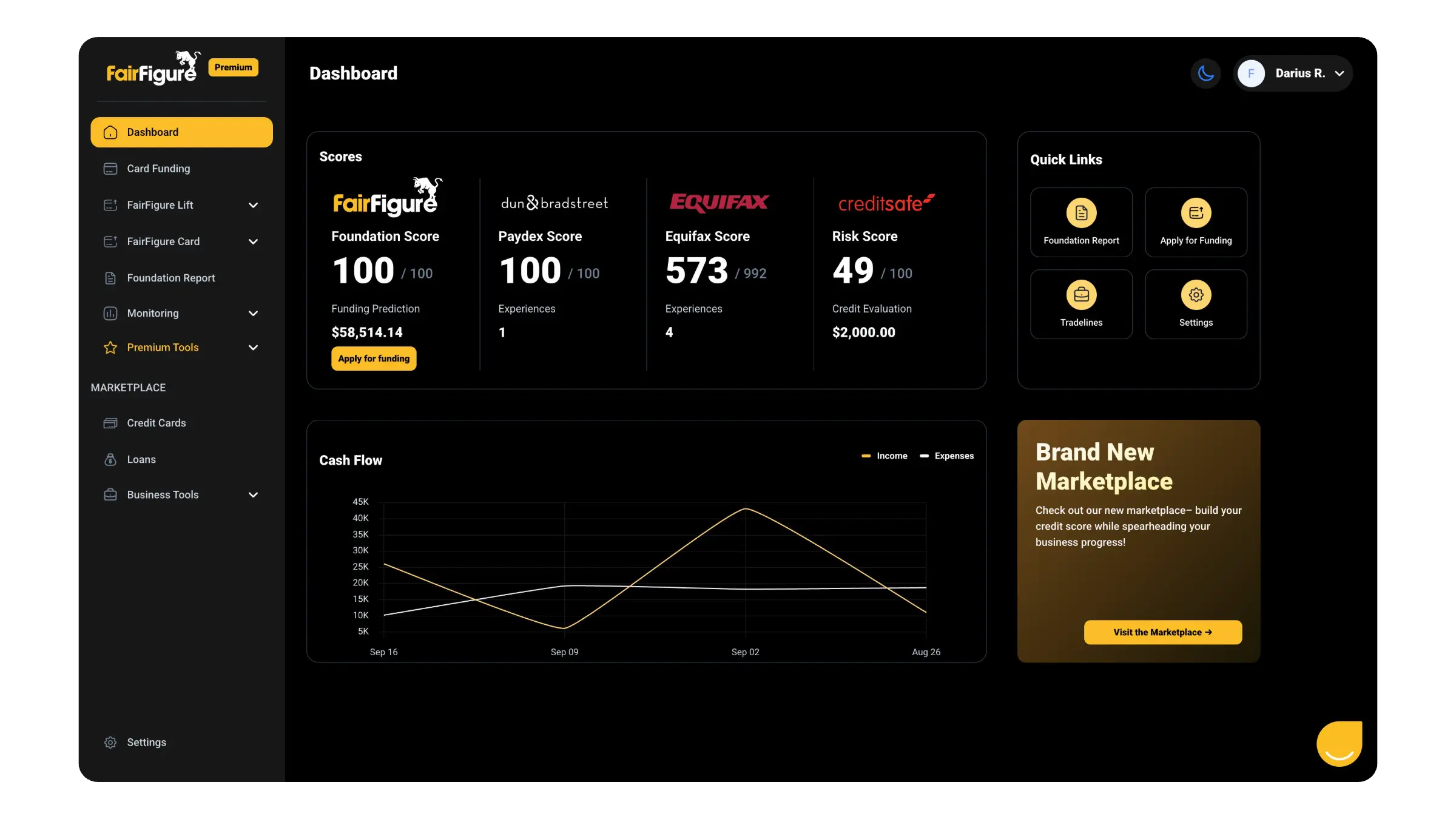Author: Nick Mann
October 07, 2025
10 min read
TABLE OF CONTENTS
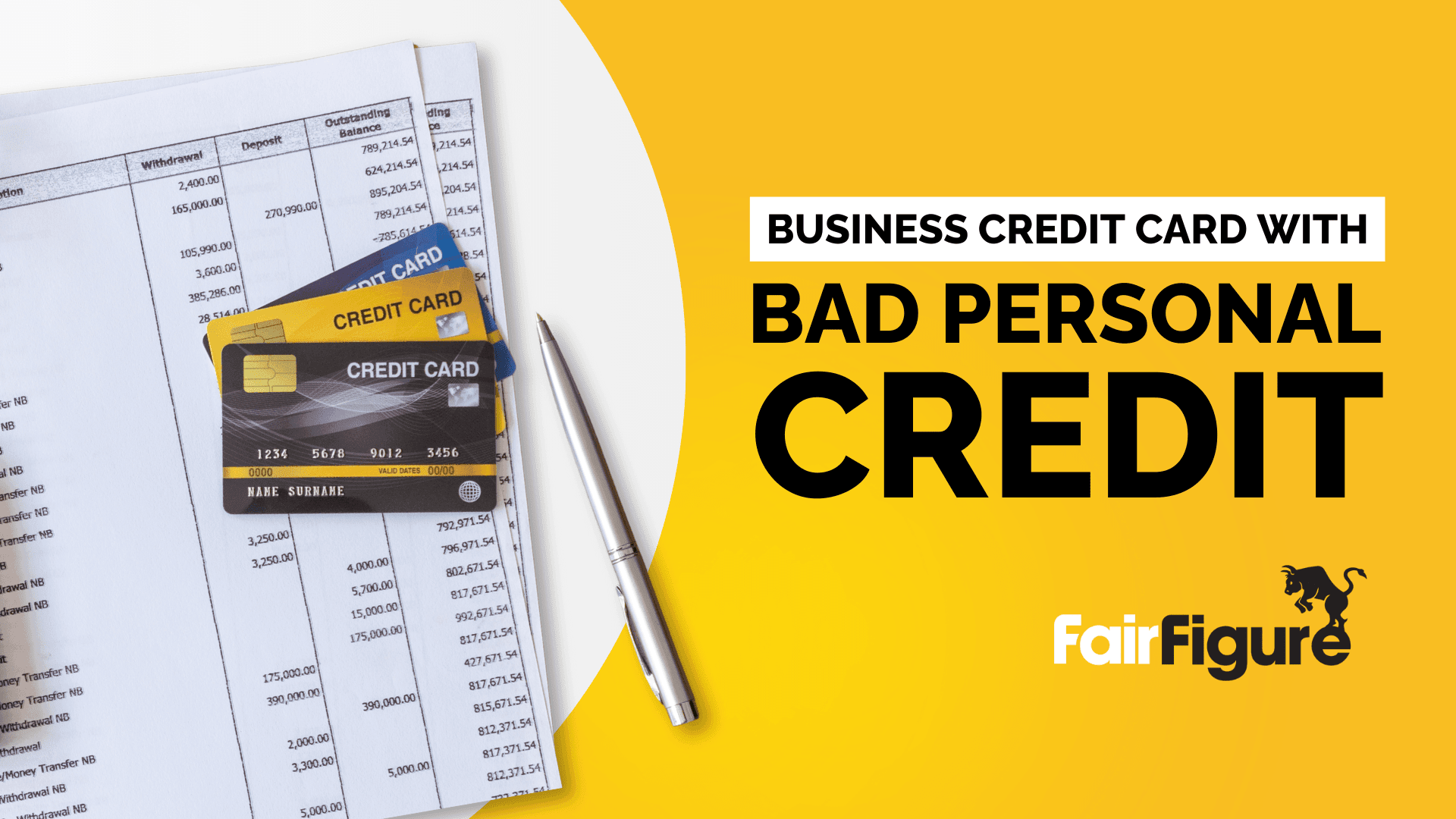
Start your credit building journey for your business

Personal credit is a major factor in a lender’s decision to give you a business credit card. Therefore, getting a business credit card with bad personal credit can be an uphill battle.
That said, it’s not impossible, as long as you take the right approach. Here’s what we suggest.
Look for Cards That Cater to Bad Credit
While it’s true that having poor personal credit limits your options when searching for a business credit card, there are at hopefully least a handful of business credit cards that are within your reach.
Just note that many will require a security deposit or personal guarantee, and you’ll likely pay a higher interest rate than you would if you had good personal credit.
Also, it’s helpful to display other signs of financial health, like solid revenue and cash flow, and a positive business credit score.
Capital One Spark 1% Classic
One popular option is the Capital One Spark 1% Classic. It’s unsecured, has no annual fee, offers 1% cash back on every purchase, and 5% cash back on hotels and rental cars that are booked through Capital One’s booking site.
The main downside is that there’s a 29.74% variable APR, which is much higher than the average 21.5% like you find on most business credit cards. Therefore, you want to be responsible with card activity if you choose the Spark 1% Classic.
FairFigure Capital Card
Another option is the FairFigure Capital Card, which has a lot going for it. It’s one of the few truly EIN-only business credit builder cards, with no personal guarantee and no credit check required.
Rather than looking at your personal credit score, FairFigure’s funding is based on business revenue, which makes it perfect if you have strong business financials but lack personal credit.
Valley Visa Secured Business Credit Card
This credit card issuer requires a deposit of up to 110% of the desired credit limit, but has no annual fee and 0% APR for the first six months. After that, the APR will range from 15.2% to 26.5%.
You also get 1% unlimited cash back, and this secured business credit card is available to many business owners with poor credit scores of 579 or less.
Here are some other helpful resources for finding the best business credit card with a poor personal credit score:
- Business credit card with EIN only
- Business credit cards that do not report to personal credit
- Startup business credit cards with no credit EIN only
How Bad Is “Bad?”
Now, let’s get into concrete numbers regarding what constitutes a low credit score. According to Experian, a personal credit score of 580 - 669 is considered fair, while 300 - 579 is considered poor.
If you fall into the fair range, your chances of getting a business credit card are decent.
It’s not a guarantee, and you may be limited to a secured card with a low credit limit. But you should have a realistic shot, especially if you have solid business revenue or a healthy business credit report.
Again, you’ll likely encounter higher interest rates, and a business card may require a security deposit or personal guarantee, just like it would if you had poor credit when applying for a personal credit card. But you have decent odds.
If you have a poor credit score of 579 or less, your chances of securing business credit cards decrease significantly, but there’s still a chance.
However, to realistically be approved for a business card, you’ll need to show strong business financials and offer collateral with secured credit cards.
So, for the context of this article, having a 400 personal credit score or 600 would both be bad, given they’re out of the good, very good, and exceptional range. But a personal credit score of 600 would have options, while a 400 would be extremely limited, with little to no options.
That’s why, if your personal credit history is bad with a score under 580, it’s important to prioritize credit-building.
Whether you’re looking for a small business credit card, a secured business credit card, a Tap Business Credit Card, a Ramp Visa Corporate Card, an employee card, or anything else, you’ll want to have your credit squared away before seeking business credit cards.
Bad Credit vs No Credit
A common question for many business owners is: What’s the difference between bad credit and no credit, and which one gives you better odds of approval?
To clarify, poor credit involves getting negative marks like late payments, defaults, and a high credit utilization ratio. No credit, on the other hand, simply involves having little to no personal credit history.
From a business credit card lender’s perspective, having bad credit carries more risk than having no credit.
That’s because it’s confirmed that someone with bad credit has a record of irresponsible money spending, and there’s a good chance that it could happen again in the future.
Therefore, it’s much harder to qualify for business credit cards with bad credit.
When it comes to no credit, lenders have no way of predicting how likely you are to pay off debt, which means there’s an unknown risk. As a result, having no credit tends to be easier to overcome than having bad credit because the risk is slightly lower for lenders.
While neither is ideal, the bottom line is that most lenders prefer no credit to bad credit, which means it’s typically easier to secure business credit cards with no credit.
Get a Co-signer
Another option for obtaining a business card if you have poor credit is getting a co-signer. Typically, a co-signer will be a spouse, family member, close friend, or business partner who 1) has good credit (a personal credit score of 670 or higher) and 2) is comfortable taking on risk.
By having them become a co-signer, you can leverage their strong credit when applying for a business credit card, which can offset your bad credit. That way, this can considerably increase your chances of approval.
Additionally, this can potentially help you secure business credit cards with higher credit limits, lower APRs, and overall better terms.
Just note that if you’re unable to pay a business credit card balance, your co-signer is legally obligated to take care of it. If there are any late payments or defaults, then it will negatively impact their personal credit.
Beyond that, agreeing to become a co-signer may increase their debt-to-income ratio, which can make it more difficult for them to secure future financing for something like a personal credit card, which is something else to consider.
Other Bad Credit Business Financing Options
Let’s say you’re in a situation where your poor credit history is inhibiting your ability to get a business credit card, or you’d rather not have to deal with a secured credit card.
There are some other options.
One is invoice financing, where you get an advance on outstanding invoices. Say, for example, you frequently offer customers 30 or 60 days to pay their invoices, but the lag time is disrupting your cash flow.
You could use invoice financing to quickly access your funds. Because you have the collateral of unpaid invoices, this is often adequate for getting approved for business financing, meaning personal credit isn’t as much of an issue.
Just note that most companies charge a small fee that typically ranges from 1% to 5% per invoice.
Another option is a merchant cash advance. Under this arrangement, a lender gives you a lump sum of cash with the understanding that you’ll give them a percentage of future sales revenue.
According to Bankrate, “MCAs may charge factor rates between 1.1 and 1.5, multiplying that rate by the amount you’re borrowing.” This means that for every dollar you borrow, you would have to repay $1.10 to $1.50.
Eligibility is largely determined by business revenue rather than a personal credit check. Unlike a personal credit card, which focuses primarily on your personal credit, MCAs are largely based on business performance.
But because of the high rates, it’s best to treat MCAs as a short-term financing alternative rather than a long-term strategy.
Also, there’s cash flow financing that looks at your incoming cash flow and offers a loan that is usually repaid by giving the lender a portion of your monthly revenue.
Build Business Credit to Expand Your Options
Given how integral your personal credit report is to securing business credit cards, as well as obtaining other types of funding like a small business loan, you’ll want to prioritize building or rebuilding credit if it’s not where it needs to be.
There are several ways to go about that.
It starts with the basics, like always making payments on time or in advance. When late payments get reported to consumer credit bureaus, this shows up on your personal credit report, which can be a major contributing factor to poor credit.
Keep your credit utilization ratio at a reasonable level, with under 30% being ideal.
Perform a periodic credit check via a platform like Credit Karma to ensure there are no errors or discrepancies reported to personal credit bureaus that aren’t your fault.
These are more common than you may think, so it’s important to remain vigilant about quickly catching issues before they can hurt your personal credit.
Opening vendor accounts with net 30 terms that report to at least one major business credit bureau is a great way to build business credit without using personal credit.
By making timely payments, this will be reported to business credit bureaus, which can be instrumental in building strong business credit and raising your business credit score.
Finally, you may want to get a corporate credit card once your business credit score has increased, as a corporate card doesn’t always require a personal guarantee. Also, a corporate card is a great way to separate your business and personal finances.
Get the FairFigure Card
Earlier, we mentioned the FairFigure Card as being one of the top business credit builder cards, and we’d like to go into more detail as to the key benefits it offers. Again, this is an EIN-only card, meaning we don’t look at your personal credit reports to determine approval.
Instead, we focus on business revenue rather than personal finance, which is great news if your business has a positive trajectory, but your personal credit is less than stellar.
There’s also no personal guarantee, deposit, or meticulous paperwork involved with the FairFigure Card. The process is simple and straightforward, with the goal of getting your business the funding it deserves.
Payback is simple, where you can opt for a four or eight-week payback plan.
On top of that, your payments are reported to Experian, Equifax, CreditSafe, and the SBFE so you can receive funding while simultaneously building business credit. Learn more here.
More articles
Read More >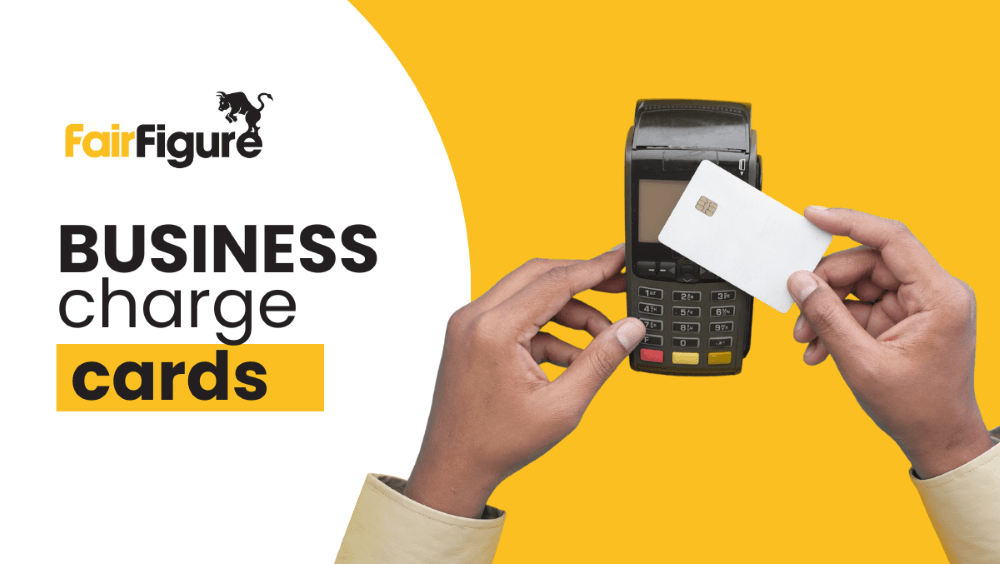
December 05, 2025
12 min read
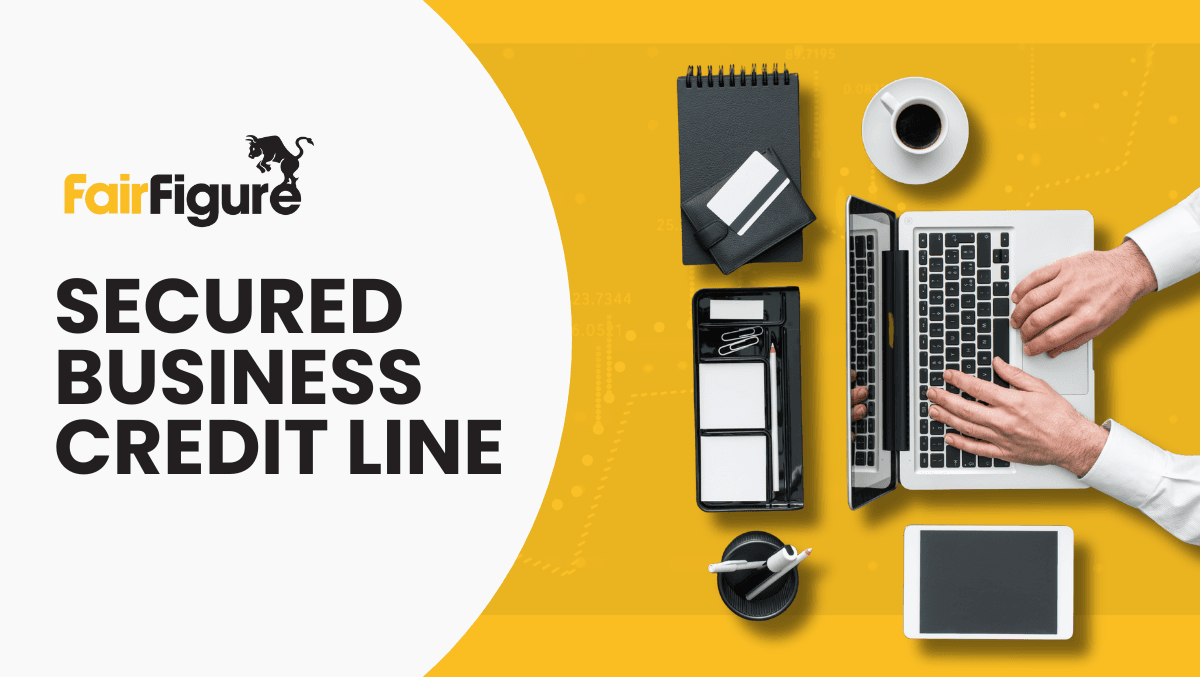
December 05, 2025
9 min read
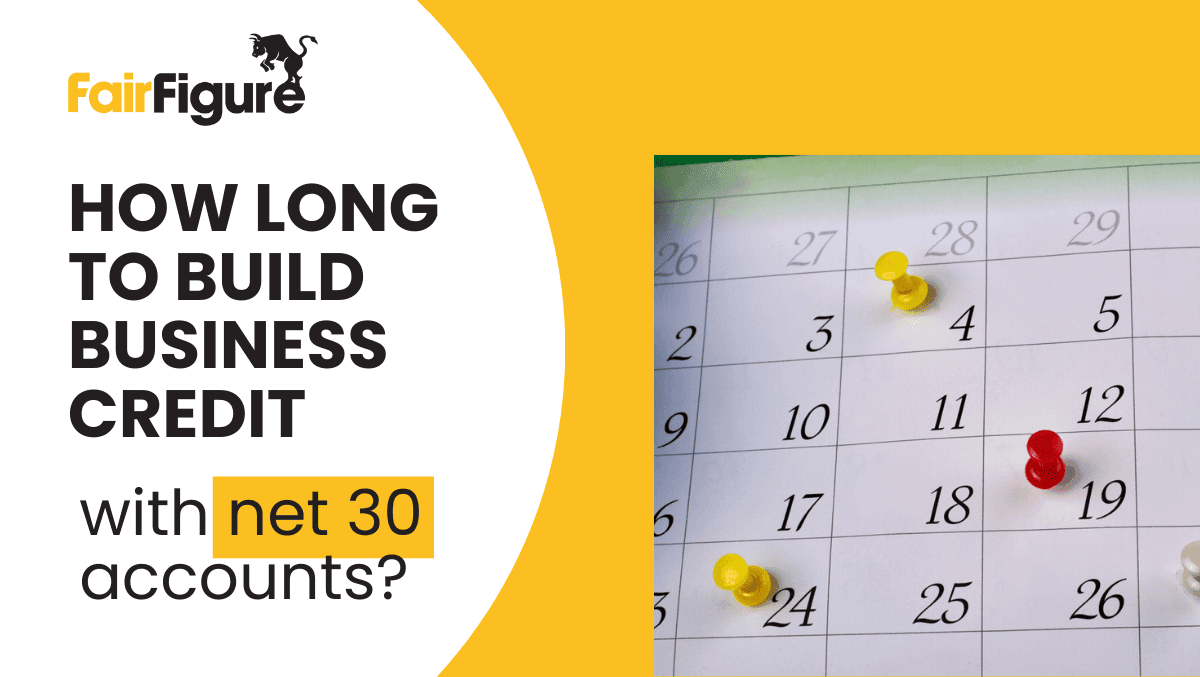
December 05, 2025
11 min read

Start your credit building journey for your business
